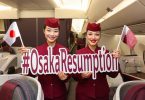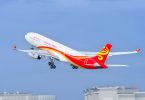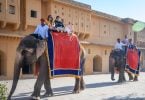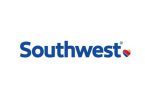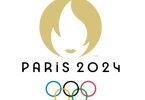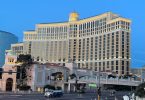Consumer expectations increase annually on average by 25%. Which airlines, hotels, car rental companies, and credit card companies rank high on the loyalty scale?
“Trust has become the connective tissue between brands and loyalty,” said Robert Passikoff, President of Brand Keys, the company that conducted the research.
“Expectations for trust are up across all product/service categories and brands an average of 250+% year over year. Meanwhile, customer concerns regarding privacy, security, and brand transparency have reached a tipping point.”
Travel Sector Loyalty Generators
Top 5 brands customers rated highly at creating emotional engagement and loyalty in the Travel categories are:
Airlines
- JetBlue
- Delta
- WestJet
- Air Canada
- American
Car Rental
- Avis
- Enterprise
- Hertz
- Budget
- National
Luxury Hotels
- Ritz Carlton
- Four Seasons
- JW Marriott
- Loews
- Fairmont
Upscale Hotels
- Kimton
- Omni
- Marriott
- Embassy Suites
- Hyatt
Midscale Hotels
- Wingate
- Drury
- Fairfield Inn
- Hampton Inn
- La Quinta
Economy Hotels
- Wyndham Microtel
- Days Inn
- America’s Best Value Inn
- Howard Johnson Express
- Super 8
Online Travel
- Booking.com
- Trip Advisor
- Yahoo Travel
- Expedia
- Priceline
Ride-Share
- Lyft
- Uber
- Gett
- Juno
- Curb
Top 10 Brands That Know The Secret of Loyalty
“Brands looking for guaranteed profits, can’t do better than loyal customers,” noted Passikoff. This year’s 2019 CLEI identified 10 brands regularly #1 in their categories, some from the time the category was established. “The following brands are perennial stars.”
Discover Card – Credit Cards: 23 years
Avis – Car Rental: 20 years
Google – Search Engine: 19 years
Domino’s – Pizza: 15 years
Dunkin’ – Out-of-Home Coffee: 13 years
Konica Minolta – MFP Office Copiers: 12 years
Hyundai – Automobiles: 10 years
AT&T Wireless – Wireless: 10 years
Amazon.com – Online Retailer: 10 years
Amazon Kindle – E-Reader: 9 years
Meeting Expectations + Brand Trust + Emotional Engagement = Lasting Loyalty
“Today, loyalty is a fusion of emotional engagement, trust, and an ability for a brand to engage; to meet or exceed expectations consumers hold for their Ideal product or service. The brands on top of this year’s category lists know that,” said Passikoff. “More importantly they know how.”
Loyalty’s Fiscal Bottom Lines
“Marketers relying on a definition of ‘loyalty’ and ‘engagement’ as something they’ll recognize when it impacts their brands will be disappointed,” said Passikoff. “Brand awareness is not loyalty; satisfaction is not loyalty; entertainment is not loyalty.”
In 2019, and for the foreseeable future, there are three concrete fiscal realities of loyalty and engagement that marketers should keep in mind:
– It costs 9 to 11 times more to recruit a new customer than to keep an existing one.
– An increase in loyalty of only 7% can lift lifetime profits per customer by as much as 85%.
– Depending upon the sector, an increase in loyalty of just 3% is equivalent to a 10% across-the-board cost reduction program.
A complete list of the 2019 CLEI’s loyalty and engagement winners can be found here.
“Decision-making has become increasingly emotionally-driven over the past decade,” said Passikoff. “But the addition of increased expectations for brand trust has radically altered the category landscape. Neither ‘business as usual’ nor ‘more social networking’ will cut it in this new brandscape. Brands have to move loyalty to the top of their to-do lists.”
Methodology
For the 2019 CLEI survey, 51,673 consumers, 16 to 65 years of age from the nine US Census Regions, self-selected categories in which they are consumers and brands for which they are customers. Forty-five (45%) percent were interviewed by phone, forty-five (45%) percent via face-to-face interviews (to include cell phone-only households), and 10% were interviewed online.
Brand Keys uses an independently-validated research methodology that fuses emotional and rational aspects of the categories, identifies four path-to-purchase behavioral drivers for the category-specific Ideal, and identifies the values that form the components of each driver, along with their percent-contribution to engagement, loyalty, and profitability.
These assessments are leading-indicators of consumer behavior, identifying such activities 12 to 18 months before they appear in traditional brand tracking or in focus groups. Brand Keys’ research technique, a combination of psychological inquiry and statistical analyses, has a test/re-test reliability of 0.93, and produces results generalizable at the 95% confidence level. It has been successfully used in B2B and B2C categories in 35 countries.
(eTN): Which brands rank high in travel loyalty? | re-post license | post content




